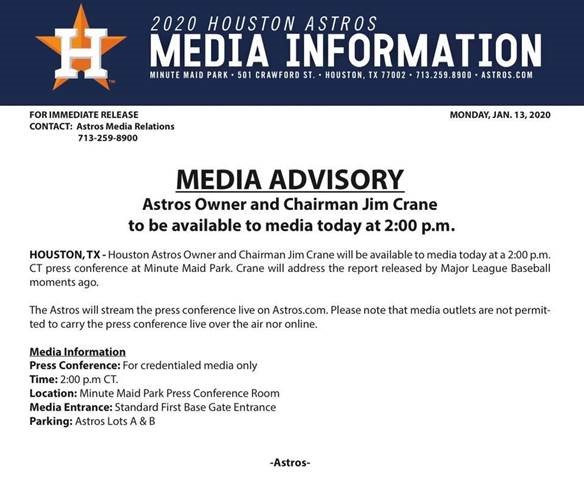The reverberations following Major League Baseball’s report on the Astros sign-stealing scandal continues to rock the Houston sports world. It did not take long for Astros owner Jim Crane to “dismiss” A.J. Hinch and Jeff Luhnow once MLB suspended both for the 2020 season (which makes me think Crane knew this was coming and already made the decision before MLB announced the suspensions).
I will leave the impact this will have on the field to the sports experts, but there was something in MLB Commissioners report that caught my eye…
“while no one can dispute that Luhnow’s baseball operations department is an industry leader in its analytics, it is very clear to me that the culture of the baseball operations department, manifesting itself in the way its employees are treated, its relations with other clubs, and its relations with the media and external stakeholders, has been very problematic.”
Manfred pulled no punches in describing the culture established under Luhnow’s leadership. You will recall back in October 2019, the Astros fired assistant general manager Brandon Taubman for targeting female reporters with inappropriate comments regarding relief pitcher Roberto Osuna who was accused of domestic violence when playing for the Toronto Blue Jays.
At first, the Astros disputed what took place calling the reporting “misleading and completely irresponsible.” They then released a mea culpa statement apologizing to Stephanie Apstein (one of the reporters targeted) and to all individuals who witnessed the incident. Taubman is now ineligible to work for any MLB club through the day after the 2020 season ends at which point he will be allowed to apply to commissioner Manfred for reinstatement.
Following the aftermath of Crane’s announcement that Hinch and Luhnow were “dismissed”, the Astros issued a media advisory making Crane available to meet with the media.
Pretty standard stuff, but what caught my eye was the line…
“Please note that media outlets are not permitted to carry the news conference live on the air nor online” (it did note the Astros would stream it on Astros.com).
Maybe I’m too old school (#OKBoomer), but inviting the media to a news conference with the caveat you can’t broadcast it live is wrong. Are they trying to drive traffic to their website? If a media outlet did broadcast it live, they would probably lose their credentials and not be allowed access to the team. I wonder what kind of reaction that would have gotten in markets like New York, or Boston. My guess is not too well.
All this does not bode well for an organization accused of, not only cheating, but having a “problematic” culture of the way it treats media. You would think the Astros would be trying to mend relationships and not continue its usual ways of doing business.

